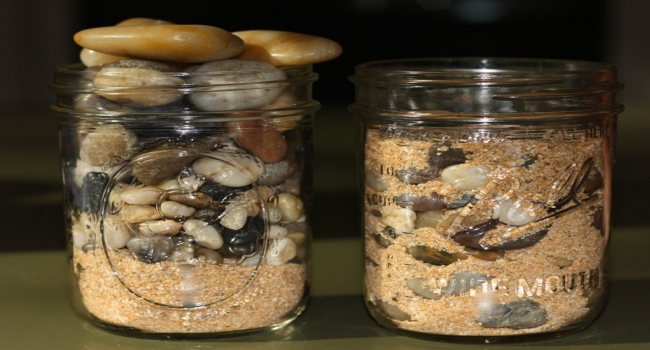Kindness
Boomerang
Kindness is like a boomerang, it keeps coming back, usually with friends.
Kindness vs Goodness
One significant difference between kindness and goodness is that there is mistaken kindness, but goodness is always good. To illustrate it, if we show kindness to a drug addict and give him money to keep buying drugs it would be mistaken kindness. Some kids are spoiled rotten because of mistaken kindness from their parents. Conversely, goodness is moral excellence. Doing good to a drug addict would entail helping him to break off his bad habit. Doing good to our children would imply teaching them to become capable and self-sufficient. In any situation, we can all show goodness.
The Farmer and the Snake
One winter a Farmer found a Snake stiff and frozen with cold. He had compassion towards it, and taking it up, placed it in his bosom. The Snake was quickly revived by the warmth, and resuming its natural instincts, bit its benefactor, inflicting on him a mortal wound. 'Oh,' cried the Farmer with his last breath, 'I am rightly served for pitying a scoundrel.' The greatest kindness will not bind the ungrateful. (http://fablesofaesop.com)
Kingdom of God
Rocks
Place some rocks in a jar and then add rice until it reaches the top, then put the lid on. Picture the rocks as the spiritual activities we must engage on, like meeting attendance, personal study, meditation, and preaching. Picture the rice as all the tiny parts of your everyday life and things you like to do, like hobbies, workout, etc. If you reverse the order, put the rice in first, the rocks will not fit properly and you will not be able to close the jar no matter how hard you try. The following is an image from k12edubuzz.com/big-rocks/.
Putting the Kingdom first and letting other things fit around it is a good way of finding Christian balance in our lives.
Hair product
Some products today promise to help bald man to grow their hair. Many of them don't work. But just imagine there is one good product that does work. What will you expect to see three weeks after? Probably some hair growing, not necessarily a lot of hair, but some. It's promising and encouraging! The same with the Kingdom. We are not in the new world now. But we can see the progress, the growth God's kingdom has achieved already by means of Jehovah's Organization. We enjoy a spiritual paradise, we have surmounted racial and national boundaries, and we enjoy relative peace in the congregation in spite of living in this old world. On the contrary, human governments are still bald, and getting worse. Truly, the kingdom is our only hope.
Learning our heritage
Just like in school we learn the history of the country we grew up in, we must learn the history of the Kingdom and God’s People. The Organization has provided publications and tools that facilitate learning it. When we see the rich spiritual heritage the Organization possesses we really feel proud of being part of it.
Knowing oneself
Distorted mirror
Some people are not able to see themselves as they truly are because their ego clouds their vision. It is as if every day they see themselves in a distorted mirror that filters out all their shortcomings in order to perceive an image that feeds and keeps alive their ego. Christians need to become aware of such tendency, and not surprisingly, the only way we would know is when a mature Christian offers scriptural counsel pinpointing this flaw in us. James 1:23, 24 says: 'For if anyone is a hearer of the word and not a doer, this one is like a man looking at his own face in a mirror. For he looks at himself, and he goes away and immediately forgets what sort of person he is.'
Two men’s prayer
The account in Luke 18:10-14 presents two men that acted according to how they saw themselves. What they believed determined their prayer: one was acceptable, the other detestable. This illustrates the fact that what we believe in our heart about ourselves directly correlates to our conduct.
Adam Smith's quote
The first thing you have to know is yourself. A man who knows himself can step outside himself and watch his own reactions like an observer. (http://www.goodreads.com/quotes)
Nietzsche's quote
One's own self is well hidden from one's own self; of all mines of treasure, one's own is the last to be dug up.(http://www.allgreatquotes.com)
Knowledge
High beams
Knowledge can be compared to light. On a dark road, the car headlights can provide the illumination we need to avoid accidents. Sometimes we need to use the high beams. If we try to use the high beams unnecessarily, though, other drivers on the road will be blinded, annoyed, some may even honk the horn at us. They will think we are careless and will try to drive far away from us. Likewise, we all have a measure of knowledge and intelligence that illuminate our path, like headlights. And we might have a measure of expertise in a particular area that, like the high beams, may come in handy in certain situations. However, showing off our intelligence all the time will not endear us to our friends, but will irritate them. People don't appreciate the overwhelming illumination of a know-it-all individual always correcting others, giving unsolicited explanations of how things work or how to do things. We should use the high beams, our in-depth knowledge, wisely.
The tree of knowledge
Knowledge works like a tree. If you try to learn a branch or a leaf of a topic before you have a solid tree trunk foundation of understanding in your head, it won’t work. The branches and leaves will have nothing to stick to, so they will fall right out of your head. What is the foundation of scriptural knowledge? A heart full of gratitude and love for Jehovah and strong faith in him. Everything else we learn will stick to it firmly and will not fall out.
Aliasing effect
Have we ever seen fan blades spinning? It looks like they are rotating backward, but we know they are actually moving forward. The same illusion can happen with rotation vehicle wheels. This is called aliasing.
When this happens, our eyes and our knowledge don't agree, but we trust our knowledge over our eyes. In many other areas of life, our perception can also play tricks on us and mislead us. We should not trust our imperfect perception, especially when our Bible-based knowledge is telling us otherwise.
Next-door neighbor
You may know who your next-door neighbor is and may even greet him by name. But would you lend him a large sum of money? Not unless you really knew what kind of person he is. Similarly, knowing Jehovah and Jesus accurately, or fully, means more than merely believing that they exist and being aware of their names. To be willing to endure trials for their sake even to the point of death, we must really know them intimately.
Knowledge of God
Your car stalls in the middle of the road, you get out to try to get help. It's in the middle of the night and it's a dangerous neighborhood. As you're walking, a big man steps in front of you and offers you a ride home. Will you take it? Probably not, because you don't trust him. What happens if you look closely and recognize him as someone you trust, like an elder or the circuit overseer. Would you take the ride? Of course. In order to trust Jehovah, we need to know him.
Wipers
Knowledge is like the car's wipers. It cleans our vision to avoid cloudy view of matters, saving us from crashing with adversity.
Osmosis
We don't learn by osmosis. In order to acquire knowledge, we need to put forth the effort to learn. We need to be taught, persuaded and even disciplined in order to learn how to live and to love Jehovah.
Bethel speaker's comment
The price of divine knowledge is effort.
Questions and answers
You may not know all the answers, but you probably won't be asked all the questions either.
Socrates’ quote
'I know that I know nothing.' What's a lesson we can derive? If we think we already know a lot and we don't like people correcting us, we will stun our learning, and we will never increase in knowledge. (https://en.wikipedia.org/wiki/I_know_that_I_know_nothing)

